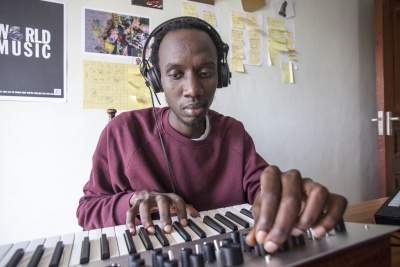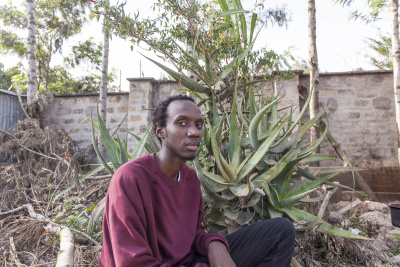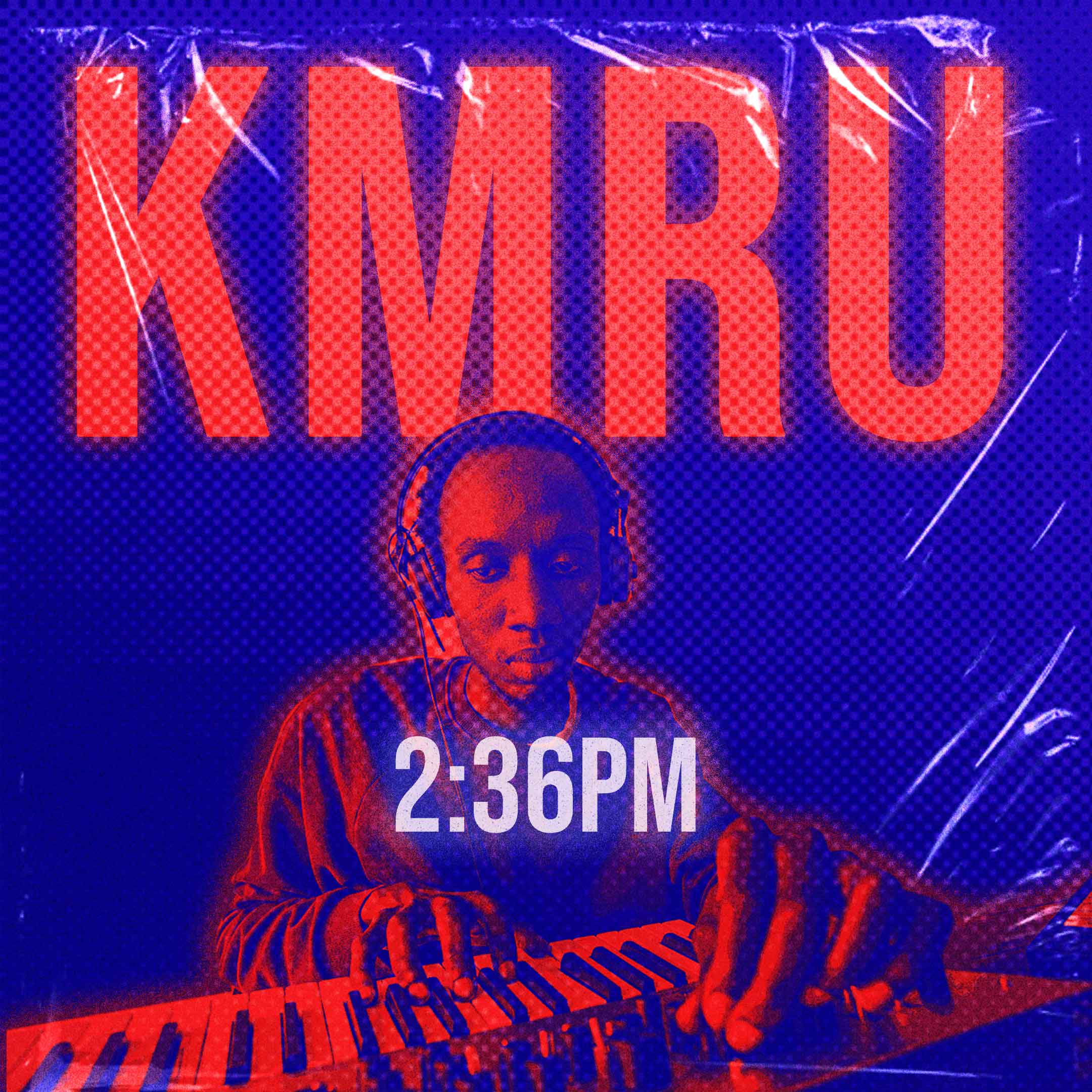2:36 PM Nairobi
It’s Kamaru, Joseph Kamaru, KMRU, in my workspace, my safe space in Rongai, 2:36 PM on the 24th of February, in Nairobi. I’m usually just here. I wake up and come to my desk. – An experimental podcast full of samples from KMRUs music, and snippets from an interview conducted in his house in 2020, just before the COVID-19 Pandemic. Currently, sound artist and experimental ambient musician KMRU lives in Berlin. He released several albums and performs at renowned international festivals. The Guardian named him one of the best new artists of 2021.
A podcast by Thomas Burkhalter and Daniel Jakob
Quotes from the Podcast

#SoundRecording
«Different objects have something to say for themselves. With technology and microphones, you can record them. And through the laptop they’re trying to speak to you.»
#Silence
«My interest to sounds became more noticeable when we moved to Rongai, just outside of Nairobi. It’s more peaceful here, super silent. You can hear so much that's around you. I keep realizing that there’s so much sound that I was missing out being raised in Kariokor in Nairobi, which is very busy and industrious.»
#KenyanSound
«What is Kenyan sound? A Kenyan listening to my music might think that I’m more inclined to the European style of music, or exposed to Westernized musicology. I think it is more about how you express yourself and what you connect to.»
#Grandfather
«My grandfather was a well-known musician in Kenya. I think he had an influence on me on what I’m doing with sounds and field recordings. He had this intimate connection to nature. We used to travel to the country side, and he used to take us near the waterfall to just to appreciate space.»
#BeingAuthentic
«I don’t picture music making as a job where I perform and get money. It’s more about expressing what I’m feeling and being authentic and honest with myself. I feel that it’s one of the really important factors that people and all creatives are honest, as they express themselves. It’s a struggle to try and be authentic. This is me and this is what I’m going to showcase to you. Living in this bedroom and a festival books me to showcasing my work is really motivating to me and to other people. Yeah, you can push and do your stuff and get bookings and get paid. So yes, live a life of the music.»
#RoleOfArtists
«There’s the artistic role, which is like the main role where I’m trying to build myself as an artist with my music and my career. And there’s also the social role where I’m trying to grow the whole community because things can’t change with me alone traveling and sharing my music. It’s for all of us to grow together and build one another and make an impact. I don’t know if there’s a way you can teach people to be open minded, but it’s about pushing and creating platforms where people can express themselves.»
#Ableton #Workshops
«We created workshops with the Ableton software. We just had a house and a living room, and two pairs of speakers and a screen where we invite people and just talk and share ideas, which we have, to write compositions which can speak louder.»
#Abroad #Home
«There’s a huge difference when I play in Europe or in Russia and come back to Nairobi and things feel a bit weird. I really love this place and I want people to grow. There’s usually a feeling where I’m so under pressure in Nairobi trying to express myself as compared when I’m at a huge festival in Europe just playing after anybody.»
TIMEZONES: Nairobi’s Next Generation Music Producers and Performing Artists Speak Out
Episode 1 of the Timezones podcast series, co-initiated and co-produced by Norient and the Goethe-Institut.
In recent years, small-scale studios in Nairobi have begun producing music locally, and some of their output reaches millions of listeners in Kenya, or create buzz and noise in international niche music scenes. Their producers and musicians are turning old hierarchies upside down, often calling for social and political reforms. But they’re also facing a lot of resistance. – The interview with KMRU was one among others that led to this Timezones episode.
Listen to all episodes here.

KMRU on Norient
Read «Hearing is Believing» by KMRU on Norient here.
#Trees
«Just recently, I discovered that trees are naturally conductive and can become antennas, capturing radio signals. Just as our bodies are penetrated by these unseen frequencies, even natural habitats engage with these sounds. It’s important that we are aware that civilization is changing much of our listening habits, silencing our environments. We need to be respectful of other species and realize that the sonic environment is shared with other living beings.»
Video-Portrait of KMRU by Coco Em
Biography
Biography
Links
Published on October 18, 2021
Last updated on February 14, 2024
Topics
Why New Yorks’ underground doesn’t give a fuck about Trump or why satirical rap in Pakistan can be life threatening.
A form of attachement beyond categories like home or nation but to people, feelings, or sounds across the globe.
From instruments made of plastic waste of the ocean to questions about a futurist naturalism which embraces technology for aesthetic emancipation.
Does a crematorium really have worst sounds in the world? Is there a sound free of any symbolic meaning?
How do acoustic environments affect human life? In which way can a city entail sounds of repression?
Snap





